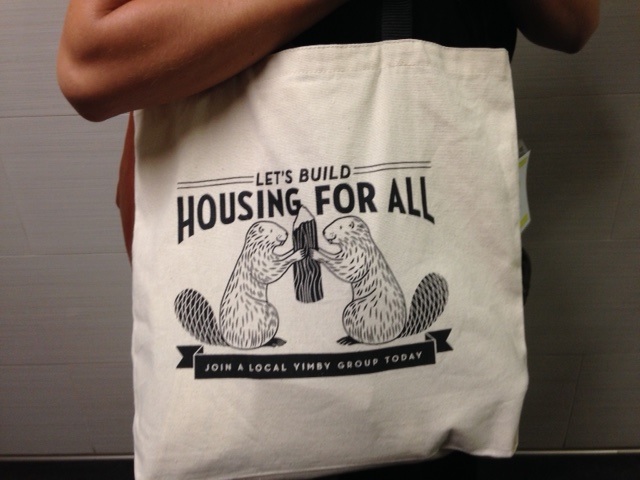
Yonah Freemark, the MIT grad student who wrote a groundbreaking study on the impacts of upzoning in Chicago, is now saying that his work has been misinterpreted – including by me.

In a piece on The Frisc, he argues that his study is just one example, that it’s not conclusive of what will happen elsewhere, and that ithas nothing to do with the possible impacts of SB50:
To wit, in response to my study, San Francisco activist and Noe Neighborhood Council cofounder Ozzie Rohm said that “dense urban areas make [affordability] matters worse.” Tim Redmond, writing for 48 Hills, contended that “the YIMBY narrative — that higher density in U.S. cities will bring down housing prices — doesn’t work in real life.”
I was a bit surprised when one of my Yimby pals wrote to say that I had been “called out by name” as misusing Freemark’s report. I was pretty careful to quote accurately what he said – that in Chicago, zoning for higher density did not bring down housing prices. In fact, prices went up – mostly, he suspects, because of speculation. You upzone land, it gets more valuable. And it didn’t even lead to more construction (since the housing construction market depends on a whole lot of factor, zoning being only one).
So I emailed Freemark and asked him what I got wrong:
Saw your piece in Frisc today. I certainly didn’t mean to misinterpret your study. I want to follow up, and I want to be sure we agree on a couple of things:
After the upzoning in Chicago, you found that land and housing prices went up, correct? Possibly that was due to speculation.
This is my major concern in San Francisco (and I’m glad you didn’t get caught up in the SB 50 battle, which is way complicated). In SF, due to the tech boom the housing market is highly price-inelastic. The only market-rate housing that gets built is very high end.
And my research has found that upzoning and adding luxury housing in vulnerable communities drives up land values (as it did in Chicago) and in a city where new housing doesn’t bring down costs (because the demand is so high and price doesn’t matter to many who are looking) — at least not in the short term and maybe not in the long term — upzoning has the potential for displacement.
I’m not opposed to density — SF is already the third-densest urban area in the country, I believe, and that’s fine. But if upzoning leads to speculation which leads to displacement of low-income communities, I have major concerns.
Please let me know if we are on the same page on this.
Freemark’s response:
Thanks for getting in touch. My primary concern was simply stating as clearly as possible why I think there are major differences between what was passed in Chicago and what’s proposed for CA. I agree that speculation is a major issue.
Me:
Thanks for getting back to me. Is it fair and accurate to say that you found that housing prices and land values rose after the upzoning?
I agree there are major, major differences between Chicago and SF/CA. But also some similarities — if upzoning in some areas leads to speculation and displacement, we need to consider that issue.
Freemark:
Yes!
So: Not so sure that he “called me out.” We seem to agree on the basic point: Upzoning for greater density can lead to price increases – he would say in the short term, but he’s looking at Chicago, not SF.
Help us save local journalism!
Every tax-deductible donation helps us grow to cover the issues that mean the most to our community. Become a 48 Hills Hero and support the only daily progressive news source in the Bay Area.
He also says that SB 50 includes some tenant protections that would guard against displacement. But he’s not here, and he knows he’s not here, and knows very little about SF real estate and development. I don’t expect him to.
In this city, the “protections” in SB 50 are worthless. They won’t prevent a wave of no-fault evictions that will almost certainly come in the wake of upzoning in vulnerable communities like the Mission.
I suppose we could accept the argument that the speculative impacts are short-term, and that if we allow more density – and the private market actually decides to build the kind of housing the city needs – that prices will eventually come down.
I don’t believe that, but let’s accept it, as the lawyers say, arguendo – for the purpose or argument.
The “short term” here is going to be at least ten years. What happens to all the people who are evicted and displaced while the wonders of the market are slowly playing out?
We know what happens. We saw it with redevelopment. They are gone. They never get to move back to their old neighborhood.
So I think Freemark and I basically agree here. Upzoning in some vulnerable neighborhoods can create speculation and higher housing prices.
